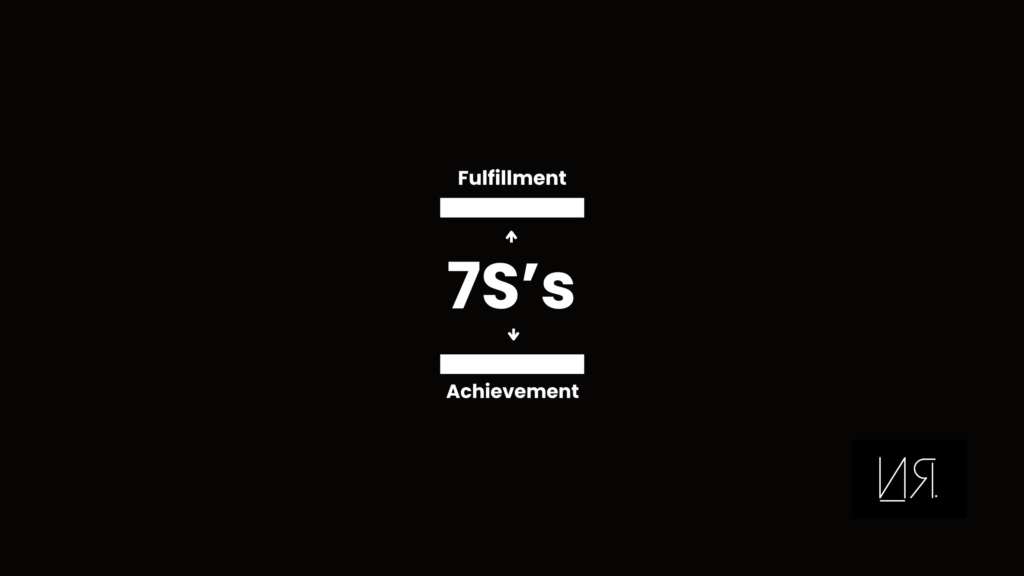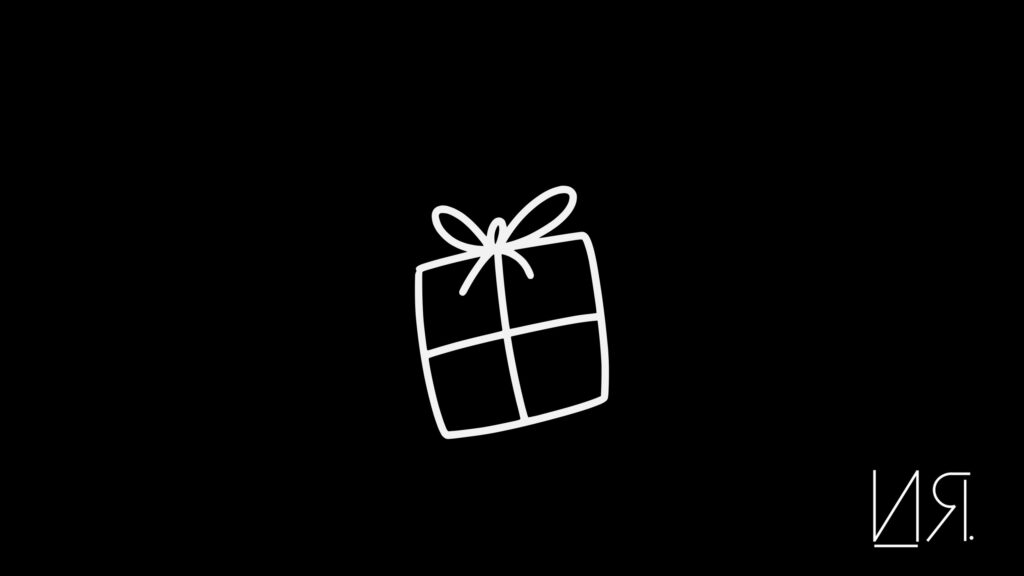When I got my bachelor’s degree in Chemical Engineering, back in Chicago, I thought, “Let me go get a master’s.”
Then I got my Master’s and thought, “When I get a job, I’ll be good.”
Then I got the job and soon I said “I’ll be satisfied when I become a decision-maker. Let me go get my MBA.”
I went to a top MBA program and said “Let me go start my business. I’ll be good then.” Then I started my business and said: “I just have to land the next deal and I’ll be satisfied.”
I’ve realized that with each rung of the ladder I reached, there was always something to strive for.
Now I know fulfillment doesn’t come solely from achievement.
On to the next one:
A lot of us are constantly chasing, seeking external validation.
The way the world is set up, it seems you have to get something to feel complete.
“When I get that title, I’ll be set.”
“After I make my first million, no one can tell me nada.”
“When I finally have that all-inclusive relationship, I’ll be good to go.”
This broken model of happiness is all based on achievement. Nothing but an endless illusion.
Reminds me of the Bob Marley lyrics: “Now, you’ve got what you want. Do you want more?”
What if it were all in your control to channel your happiness?
Instead of saying “when I get this, I’ll be happy,” you switch to “I’m already happy, so I can get everything.”
What if everything you need is already on the inside.
7 S’s to enjoy your life a lot more and find fulfillment:
A few years ago, when I lived in Oakland, California, I picked up the habit of running around Lake Merritt early in the morning.
It was about a 3-mile run. It seemed like the last half-mile was always the toughest. The finish line kept fading out the closer I got to it.
Then I learned something called the “reverse gap” in a mindset class. Instead of focusing on what you have left to achieve, focus on how far you’ve covered towards a goal.
Since then, whenever I ran, once I started getting tired, I’d remind myself “Look, you’ve already done 1.5 miles, great. Keep going. 2.75 already done. Amazing.” The more I did this, the more I enjoyed the journey.
You have to find your own little tools to overcome and find fulfillment.
Here are the 7 S’s I use to feel more fulfilled daily.
1. Self-reflection
You can’t grow what you don’t pay attention to.
A lot of us have different KPIs and performance reviews for work but we don’t apply the same to ourselves. Without a benchmark, you’ll never know what “done looks like.” Take some time to look at how far you’ve come. Yes, there’s always room for improvement, but try the reverse gap.
Reflect. Look at all the things that have gone well.
You’re breathing, with a roof over your head, and a device to communicate and read this email.
Gratitude and self-reflection enables you to create space for more satisfaction in your life.
The more you do this practice, the more grateful you become.
2. Self-worth
You are enough.
A lot of us put our self-esteem in one basket. Most times it’s linked to performance at a job or in a relationship. We define ourselves by whether we’re good employees, employers, or partners. Once that perception is shattered, our self-esteem sinks like the mighty titanic.
You have to detach your self-worth from your ability to perform.
You are not what you do. A good approach is to diversify your self-worth. Have multiple hobbies and projects that keep you buoyant across the board.
Remember, you are enough.
3. Self-soothe
Pain and pleasure coexist.
A lot of people feel miserable because they believe they shouldn’t. “Why do I feel bad? I should be happy all the time. What’s wrong with me?” The misery creates more misery, down the spiral you go.
Who is happy all the time?
The reality is that pain and pleasure live on the same plane. Push too hard on pleasure, your body seeks equilibrium, swinging the other way. That’s why there’s a crash after the high of doing something enjoyable, and when you do something hard that goes against comfort (e.g. run a long race), you feel pleasure afterwards.
The swing of pleasure and pain goes back and forth.
Self-soothe with breathing practices that keep you balanced in the middle.
4. Systematic externalization
Be a transforming artist.
We’re deep in the information era. Our bodies and minds haven’t caught up to the speed of information we have access to, daily. Just like food, you have to expel the information you consume, otherwise you’ll feel a paralyzing fog of consciousness.
Externalize your experience: Create art.
I know, some people will say “but I’m not an artist.” The goal of the artist is not to make a physical object, but to reflect on the changing perception of the world through their full immersion and awareness of it, and recreate that reflection in others.
Everyone has to be an artist and process how the flood of information impacts their senses to have a chance of living healthy in this ever-changing era.
Find an outlet to process, externalize, and “sense-make.”
5. Service
Give more than you take.
There is an invisible agreement that most of us have signed. Don’t question anything, put your head down, and produce your tiny widget with your specialized skill in our industrialized world. You’ll be compensated with limited money that you can use to exchange for someone else’s specialized product.
This has developed a sense of scarcity. Where it’s take, take, take, making you think you don’t have enough. The response is somewhat counterintuitive. When you are down, do something nice for someone.
Be generous, even if it’s as little as providing your presence and time
Build something of value, give it away for free.
6. Storytelling
The story you tell yourself is as important as the story you tell others.
Storytelling “serves your service” by allowing you to get the value you created into the hands of those who need it.
But the more important story is not the one you tell others, it’s the story you tell yourself.
We have negative narratives, telling ourselves: “Oh, I’m never lucky.” “Good things never happen to me.” “Others have it better.” These are all reinforcing stories.
How about switching the narrative?
Actively envision good things happening to you. Start telling yourself stories about getting that promotion and launching that successful project. This puts you in a virtuous cycle to make it happen.
Tell elevating stories.
7. Silence
Observe the thinker.
I remember something Deepak Chopra said at Veecon, an entrepreneurship conference, two years ago: “Silence is the language of God.”
Those words struck me.
I’ve been meditating for almost 10 years now. One major insight I’ve learned about myself is that my mind truly has a “mind of its own,” with one random thought after the other.
You’ll be surprised at how many unconscious, repetitive thoughts you have.
Meditation is a silent observation. Focus on your breathing and observe the thinking mind. When a thought comes, observe it, say “hmmm, that’s interesting,” and let it go.
With time you can silent the obsessive mind.
While the world gets noisy, go silent.
Final thoughts…
The main takeaway here is that your happiness is within your own grasp.
It’s not something achieved outside of you. You have to search within to find your own tools to foster fulfillment in your life.
I hope these 7 Ss help.
Yours truly,
Nifemi
P.S. Is there any of the 7 above that really resonated with you that you’d like to hear more about or want to clarify further?



